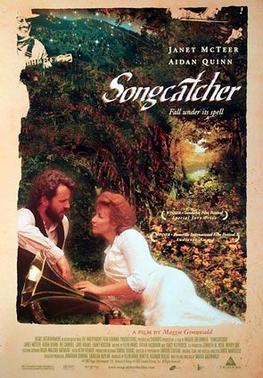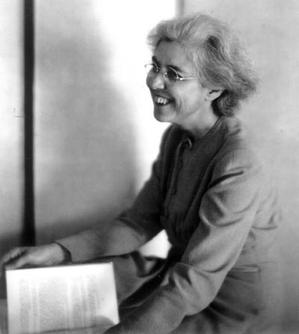Related Research Articles

"Barbara Allen" is a traditional folk song that is popular throughout the English-speaking world and beyond. It tells of how the eponymous character denies a dying man's love, then dies of grief soon after his untimely death.
"Lily of the West" is a traditional British and Irish folk song, best known today as an American folk song, listed as number 957 in the Roud Folk Song Index. The American version is about a man who travels to Louisville and falls in love with a woman named Mary, Flora or Molly, the eponymous Lily of the West. He catches Mary being unfaithful to him, and, in a fit of rage, stabs the man she is with, and is subsequently imprisoned. In spite of this, he finds himself still in love with her. In the original version, the Lily testifies in his defense and he is freed, though they do not resume their relationship.
"The Daemon Lover" – also known as "James Harris", "A Warning for Married Women", "The Distressed Ship Carpenter", "James Herries", "The Carpenter’s Wife", "The Banks of Italy", or "The House-Carpenter" – is a popular ballad dating from the mid-seventeenth century, when the earliest known broadside version of the ballad was entered in the Stationers' Register on 21 February 1657.
"Foggy Dew" or "Foggy, Foggy Dew" is an English folk song with a strong presence in the South of England and the Southern United States in the nineteenth century. The song describes the outcome of an affair between a weaver and a girl he courted. It is cataloged as Laws No. O03 and Roud Folk Song Index No. 558. It has been recorded by many traditional singers including Harry Cox, and a diverse range of musicians including Benjamin Britten, Burl Ives, A.L. Lloyd and Ye Vagabonds have arranged and recorded popular versions of the song.
"Frog Went a-Courtin'" is an English-language folk song. Its first known appearance is in Wedderburn's Complaynt of Scotland (1549) under the name "The Frog cam to the Myl dur", though this is in Scots rather than English. There is a reference in the London Company of Stationers' Register of 1580 to "A Moste Strange Weddinge of the Frogge and the Mouse." There are many texts of the ballad; however the oldest known musical version is found in Thomas Ravenscroft's Melismata in 1611.

Jean Ruth Ritchie was an American folk singer, songwriter, and Appalachian dulcimer player, called by some the "Mother of Folk". In her youth she learned hundreds of folk songs in the traditional way, many of which were Appalachian variants of centuries old British and Irish songs, including dozens of Child Ballads. In adulthood, she shared these songs with wide audiences, as well as writing some of her own songs using traditional foundations.

Songcatcher is a 2000 drama film directed by Maggie Greenwald. It is about a musicologist researching and collecting Appalachian folk music in the mountains of western North Carolina. Although Songcatcher is a fictional film, it is loosely based on the work of Olive Dame Campbell, founder of the John C. Campbell Folk School in Brasstown, North Carolina, and that of the English folk song collector Cecil Sharp, portrayed at the end of the film as professor Cyrus Whittle. The film grossed $3 million in limited theatrical release in the United States, which was generally considered as a respectable result for an arthouse film release in 2001.

"Matty Groves", also known as "Little Musgrave and Lady Barnard" or "Little Musgrave", is a ballad probably originating in Northern England that describes an adulterous tryst between a young man and a noblewoman that is ended when the woman's husband discovers and kills them. It is listed as Child ballad number 81 and number 52 in the Roud Folk Song Index. This song exists in many textual variants and has several variant names. The song dates to at least 1613, and under the title Little Musgrave and Lady Barnard is one of the Child ballads collected by 19th-century American scholar Francis James Child.

"The Raggle Taggle Gypsy" (Roud 1, Child 200), is a traditional folk song that originated as a Scottish border ballad, and has been popular throughout Britain, Ireland and North America. It concerns a rich lady who runs off to join the gypsies (or one gypsy). Common alternative names are "Gypsy Davy", "The Raggle Taggle Gypsies O", "The Gypsy Laddie(s)", "Black Jack David" (or "Davy") and "Seven Yellow Gypsies".
"The Maid Freed from the Gallows" is one of many titles of a centuries-old folk song about a condemned maiden pleading for someone to buy her freedom from the executioner. Other variants and/or titles include "The Gallows Pole", "The Gallis Pole", "Hangman", "The Prickle-Holly Bush", "The Golden Ball", and "Hold Up Your Hand, Old Joshua She Cried." In the collection of ballads compiled by Francis James Child in the late 19th century, it is indexed as Child Ballad number 95; 11 variants, some fragmentary, are indexed as 95A to 95K. The Roud Folk Song Index identifies it as number 144.

"Fair Margaret and Sweet William" is a traditional English ballad which tells of two lovers, of whom either one or both die from heartbreak. Thomas Percy included it in his folio and said that it was quoted as early as 1611 in the Knight of the Burning Pestle. In the United States, variations of Fair Margaret have been regarded as folk song as early as 1823.
The Farmer's Curst Wife is a traditional English language folk song listed as Child ballad number 278 and number 160 in the Roud Folk Song Index.
"The Knight and the Shepherd’s Daughter" is an English ballad, collected by Francis James Child as Child Ballad 110 and listed as number 67 in the Roud Folk Song Index.

Helen Hartness Flanders, a native of the U.S. state of Vermont, was an internationally recognized ballad collector and an authority on the folk music found in New England and the British Isles. At the initiative of the Vermont Commission on Country Life, Flanders commenced a three-decade career capturing traditional songs that were sung in New England—songs that, in many cases, traced their origin to the British Isles. The timing of her life work was critical, coming as it did when people were turning away from traditional music in favor of listening to the radio. Today her nearly 4,500 field recordings, transcriptions and analyses are housed at the Flanders Ballad Collection at Middlebury College, Middlebury, Vermont and have been a resource for scholars and folk singers, since the establishment of the collection in 1941.
Maud Karpeles OBE, was a British collector of folksongs and dance teacher.
"Donnelly and Cooper" is an Irish ballad recounting a historic bare-knuckle boxing match between Dan Donnelly and George Cooper.
"The Farmer's Boy" is a traditional English folk song or ballad, listed as number 408 in the Roud Folk Song Index. It has been arranged as a military march.
Kenneth S. Goldstein was an American folklorist, educator and record producer and a "prime mover" in the American Folk Music Revival.
Donald Knight Wilgus was an American folk song scholar and academic, most recognized for chronicling 'Hillbilly', blues music and Irish-American song and his contribution to ballad scholarship.
Judith McCulloh was an American folklorist, ethnomusicologist, and university press editor.
References
- ↑ Anna Kearney Guigné (2008). Folksongs and folk revival: the cultural politics of Kenneth Peacock's Songs of the Newfoundland outports. Memorial University of Newfoundland. Institute of Social and Economic Research. ISBN 978-1-894725-06-4 . Retrieved 10 June 2012.
- 1 2 3 Anita Best, Elisabeth Greenleaf fonds Archived 2016-08-01 at the Wayback Machine at Memorial University Department of Folklore
- 1 2 Elizabeth Bristol